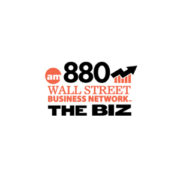To view the original article, click here.
By Robert Barba
October 16, 2014
Last week’s conservatism can become this week’s wise move in bank M&A. Take Greater Sacramento Bancorp, the holding company of the $468 million-asset Bank of Sacramento, which on Wednesday announced plans to sell itself to AmericanWest Bancorp in Spokane, Wash., for $60 million — in cash.
“Cash looks far better right now. Stocks go back and forth and our board made the decision that it was of the attitude that ‘cash is cash,'” William Martin, president and chief executive of Greater Sacramento, said Thursday, the most intense day of a weeklong stock market slide. “You know what you’re getting.”
That attitude had become passé until recently. So much of the M&A activity of the past couple of years has been predicated on the market’s treatment of bank stocks. Sellers could be sold on the upside potential of taking another bank’s supposedly undervalued stock as a consolation for a low premium. As the rally matured, banks with high-flying stock multiples had the type of currency where they could offer sellers a decent price without incurring too much dilution.
But the recent market volatility is a reminder that cash offers, despite their lack of potential upside and real tax implications, can provide a sense of certainty that stock deals cannot.
The Greater Sacramento deal has been in the works for more than a year, long before the market falloff of the past week, but persistent volatility contributed to the company’s decision to take a cash offer, Martin said. Bank stocks rose roughly 40% last year and the board just could not buy into the idea that there was still more room for them to go up.
“We had a couple of stock offers, but we were very nervous in some of the stock that was offered,” Martin said. “They were high-flying and we wondered how much can it continue to go up? It can’t happen forever.”
More sellers may start to share that view, says James Cassel, chairman and co-founder of Miami investment banking firm Cassel Salpeter.
“It all depends on how you perceive the buyer. Is its stock undervalued, fairly valued or overvalued?” Cassel said. “You might have a great opportunity if it is undervalued or fairly valued, but some of the bank stocks that we thought maybe had some upside have shown us recently that maybe they didn’t.”
AmericanWest is paying Greater Sacramento shareholders 152% of the seller’s tangible book value, or $22.05 per share. The price is high — the average price paid in the third quarter was 128% — but worth it, said Scott Kisting, the CEO of AmericanWest. The deal fleshes out the company’s presence in northern California, where it currently encircles Sacramento. It will also push the bank’s assets to roughly $4.5 billion, with $1 billion in northern California.
The above-average premium “is what it took to do the deal,” Kisting said in an interview on Wednesday. “But we expect it be accretive in the first year — very accretive — and will cover our one-time merger costs.”
AmericanWest is the bank unit of SKBHC Holdings, a private-equity-backed entity formed in 2010 with $750 million in capital; SKBHC bought AmericanWest in a bankruptcy auction. Since then, the company has announced eight other acquisitions, including the Sacramento deal, and has tapped $485 million of the capital. Its last deal, for the $1.2 billion-asset PremierWest in Medford, Ore., was completed in April 2013.
The company took some time away from M&A to focus on the PremierWest deal, but Kisting said he returned to a much more difficult M&A environment. The company has been on the prowl but has been beaten out on several occasions by buyers with rich stock premiums.
“We’ve been looking, but as a cash buyer it is harder,” Kisting said.
His comments echo the problem several of the roll-up vehicles around the country are experiencing. The number of bank failures did not live up to expectations, and healthy sellers have often favored stock. Even those companies that have gone public are struggling to do deals because their stocks are not trading at the same multiple as more established buyers.
But Kisting returns to the idea that when the market gets topsy-turvy, cash suddenly looks better.
“When volatility goes up and down the certainty of cash has a huge advantage,” he said.









